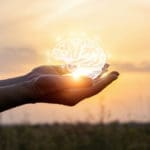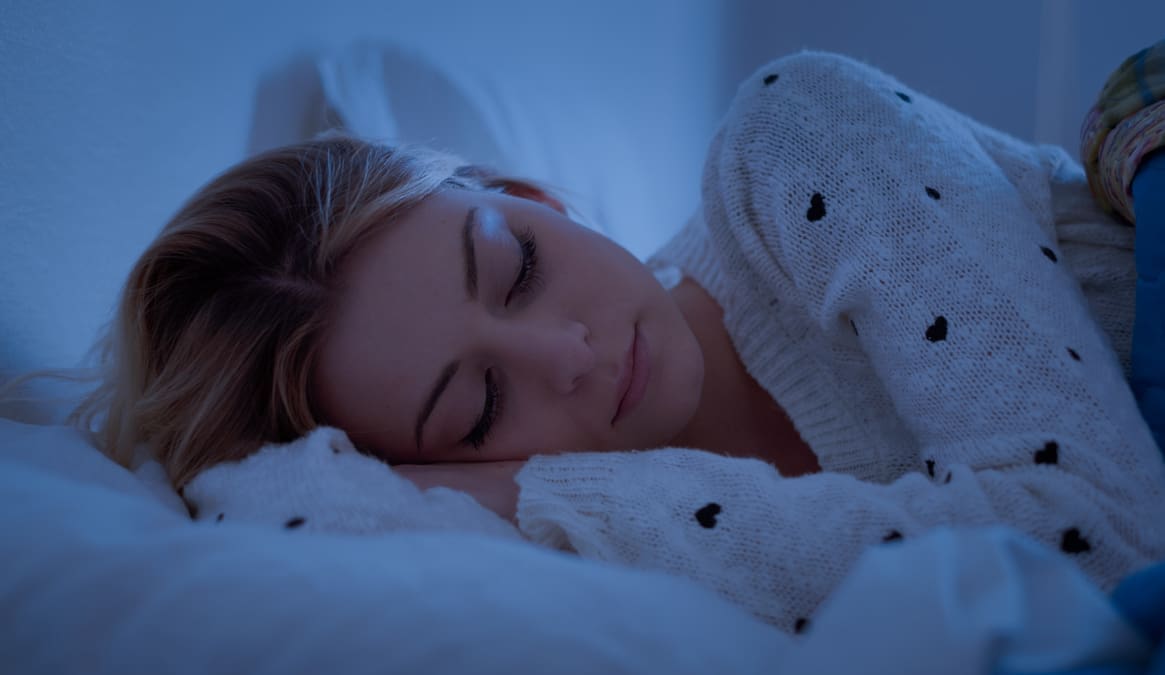Almost everyone has trouble sleeping at some point. Worries from the day can stick in your mind and keep you from taking the break your brain needs to mentally recharge. But when impaired sleep habits turn into a more serious issue, a doctor may need to step in to help. It can be difficult to remedy sleep disorders. Treatment may require medications, cognitive/behavioral approaches, and other strategies. TMS can play an important factor in helping to regulate sleep patterns.
Transcranial magnetic stimulation (TMS) is a noninvasive procedure that stimulates different regions of the brain to treat the symptoms of depression. This painless procedure is completed in about 20-45 minutes daily for 4-6 weeks. Since sleep deprivation and depression are connected, we’ll explore how TMS can affect sleep.
How TMS Benefits Patients
Insomnia can impact major depressive disorder by obstructing the response to treatment and raising the risk of a depression relapse. With TMS therapy, patients can find relief from depression and gain an enhanced quality of sleep. The majority of TMS studies have focused on how the procedure can help treat depression. However, as TMS has become more commonly used and studied, doctors are realizing that it has a beneficial impact on sleep as well.
Sleep disturbance is a serious symptom of depression. Depression, especially when accompanied by sleep problems, can decrease a patient’s quality of life while also increasing the risk of suicide. Similar to depression, finding the right medication to enhance the quality of sleep can be difficult. Antidepressant medications have the potential to cause drastic side effects, often causing patients to discontinue their treatment. Included in these side effects are problems falling asleep, excessive sleep, or extreme fatigue during the day. TMS is a treatment option that can allow patients to avoid these side effects.
Studies Conducted On the Impact of TMS on Sleep
A number of studies have been conducted to evaluate if TMS not only helps treat depression but also can improve sleep. Although some studies have found that “those receiving the treatment did not report effects on sleep,” other studies have demonstrated a connection between TMS treatment and overall sleep improvement. A 2013 pilot study involving 60 subjects concluded that “rTMS substantially improves depression and sleep quality of patients with comorbid major depressive disorder and insomnia.” Sleep quality, time for falling asleep, amount of sleep, and functioning during the day all improved for those patients in this study who received a standard course of TMS.
In another study, 13 patients were examined with bipolar or unipolar depression. Patients received 20 daily sessions of 10 Hz rTMS administered over the left dorsolateral prefrontal cortex. The aim of the study was to investigate whether TMS had any therapeutic effect on insomnia (reported in 83 % of these patients) associated with depression. According to the study, “After rTMS, the [Clinical Global Impression] and [Hamilton Depression Rating Scale (HDRS)] total score decreased significantly. Also, the insomnia-related items of HDRS improved. The [Athens Insomnia Scale (AIS)] showed trend towards decrease.”
In 2013, a study on 120 patients with chronic primary insomnia abstracted in the National Center for Biotechnology Information, concluded that “TMS treatment significantly better-improved stage III sleep and REM sleep cycle compared with [two] control groups.” By studying multiple patient groups, doctors were able to determine the real-world impact of TMS on sleep. The authors concluded that “TMS treatment is more advantageous than both medication and psychotherapy treatments in improving sleep architecture. Further, TMS significantly decreases the body awakening level and provides a better long-term treatment effect.”
Contact Mid City TMS
At Mid City TMS, our goal is to treat depression and all its symptoms, including sleep disturbances. To find out more about how TMS can improve sleep and other symptoms of depression, contact us today to schedule a consultation.



